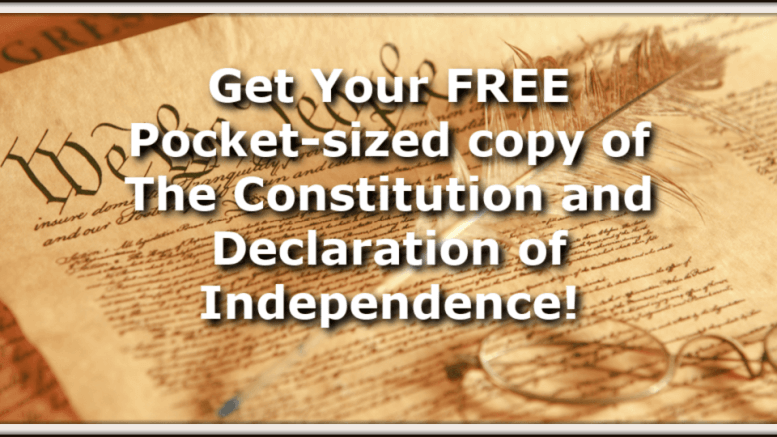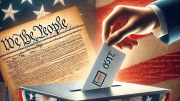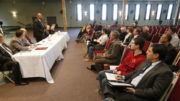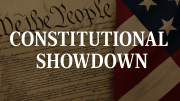Playback speed:
See Part 1 here> Is the Constitution Still Relevant? | Constitution Minute
The U.S. Constitution is essential for securing liberty, yet many are unfamiliar with its contents and the freedoms it protects. These videos aim to provide a quick understanding of critical aspects of the Constitution. They are presented by Hillsdale College, which is dedicated to promoting civil discourse and the principles of liberty and limited government.
Get Your FREE Pocket-sized copy of The Constitution and Declaration of Independence!
Click Here to get yours Today (Hillsdale Constitution Minute)
Absolutely. James Madison’s observation is profound, and it’s worth reflecting on how it applies to our present-day context.
In 1788, as the Constitution was undergoing intense debate, James Madison, one of the Founding Fathers of the United States, articulated a critical point regarding the relationship between the government and its citizens. He highlighted the importance of a vigilant and robust spirit among the American people as the primary restraint on Congress from passing laws that would apply to the populace but not to the legislators themselves.
Madison emphasized that this spirit, characterized by its vigilance and commitment to freedom, was essential for maintaining the fabric of liberty in the young nation. He understood that the very foundation of freedom would be at risk if this spirit were ever to wane if the people were to become complacent and tolerant of laws that did not hold their representatives to the same standards as themselves.
Fast-forward to today, and we find ourselves living in a society where laws and regulations do not apply equally to elected officials and those who work for them. This dissonance between the governed and the governing challenges the principles upon which the nation was founded.
Suppose we aspire to uphold the ideals of liberty and ensure that they endure for future generations. In that case, we must heed Madison’s warning and rekindle the flame of freedom that animated the hearts of our founding fathers. We must cultivate a renewed spirit of vigilance among the American people, which demands accountability from those in power and insists on equality before the law for all citizens.
Preserving liberty requires active participation and a steadfast commitment to the values that define us as a nation. It requires us to hold our elected officials accountable and to strive for a society where the rule of law applies equally to everyone, regardless of their position or privilege. In doing so, we honor the legacy of those who fought to secure our freedoms and ensure that the torch of liberty continues to burn brightly for generations to come.
Get Your FREE Pocket-sized copy of The Constitution and Declaration of Independence!
Click Here to get yours Today (Hillsdale Constitution Minute)
Want to learn more about the Constitution?
Get Hillsdale’s FREE online course on the Constitution here:
Constitution 101: The Meaning and History of the U.S. Constitution
Preserving liberty requires active participation and a steadfast commitment to the values that define us as a nation.
American citizens can actively participate and demonstrate a steadfast commitment to preserving the freedoms enshrined in the U.S. Constitution in several ways:
-
Educate Themselves: Citizens can educate themselves about the principles and values embedded in the Constitution, including the Bill of Rights and subsequent amendments. Understanding these constitutional provisions’ history, significance, and relevance empowers individuals to advocate for their preservation.
Get Your FREE Pocket-sized copy of The Constitution and Declaration of Independence!
Click Here to get yours Today (Hillsdale Constitution Minute)
-
Engage in Civic Discourse: Active participation in civic discourse is essential for preserving constitutional freedoms. Citizens can engage in informed discussions, debates, and dialogue about constitutional issues, policies, and current events online and in their communities.
-
Exercise Voting Rights: Voting is a fundamental right and responsibility in a democratic society. By exercising their right to vote in elections at all levels of government, citizens can hold elected officials accountable and influence decision-making processes that impact their freedoms and liberties.
-
Support Civil Liberties Organizations: Citizens can support civil liberties organizations and advocacy groups that defend constitutional rights and liberties. These organizations are vital in monitoring government actions, challenging unconstitutional policies or practices, and promoting public awareness and engagement on civil liberties.
-
Participate in Activism and Advocacy: Citizens can participate in activism and advocacy efforts to advance causes aligned with constitutional principles, such as freedom of speech, press, religion, assembly, and the right to due process. These efforts may involve organizing rallies, protests, petitions, and lobbying elected officials.
-
Serve on Juries: Jury service is a fundamental aspect of the justice system and a way for citizens to directly participate in upholding constitutional rights, such as the right to a fair trial and the presumption of innocence. By serving on juries, citizens contribute to the administration of justice and safeguard individual liberties.
-
Promote Civic Education: Supporting civic education initiatives in schools and communities helps ensure that future generations understand the importance of constitutional freedoms and their role in preserving them. Encouraging the study of civics, government, and constitutional law fosters an informed and engaged citizenry.
-
Respect and Protect the Rights of Others: Respecting and protecting the rights and liberties of others, even when their views or beliefs differ from one’s own, is essential for maintaining a free and democratic society. Upholding principles of tolerance, inclusion, and diversity strengthens the fabric of constitutional freedoms for all citizens.
By actively participating in these ways and demonstrating a steadfast commitment to the values that define the United States as a nation, American citizens can contribute to preserving and promoting the freedoms enshrined in the U.S. Constitution.
The author partially generated this text with GPT-3, OpenAI’s large-scale language-generation model. Upon developing the draft language, the author reviewed, edited, and revised the language to their liking and took ultimate responsibility for the content of this publication.





